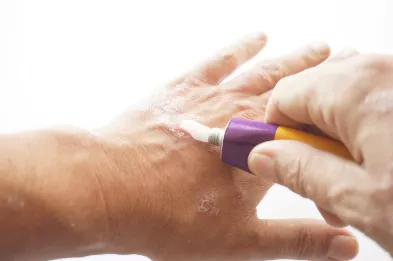Researchers at the National Institutes of Health (NIH) have made a significant discovery by categorizing dermatitis caused by topical steroid withdrawal (TSW) as a condition separate from eczema. This new classification aims to clarify the confusion between these two skin disorders, which have often been difficult to differentiate.
The National Institute of Allergy and Infectious Diseases (NIAID) team at NIH has carefully examined the differences between TSW and eczema. Their research led to an open-label pilot study aimed at treating TSW symptoms using metformin and berberine, two compounds that were not previously associated with this condition.
The study, published in the Journal of Investigative Dermatology, was conducted by NIAID’s Laboratory of Clinical Immunology and Microbiology. The research team analyzed data from 1,889 adults with eczema-like symptoms. These participants were split into two groups: those who reported experiencing TSW symptoms and those who did not. The goal was to identify traits specific to TSW, such as skin redness, burning sensations, thermal dysregulation, itching, and peeling.
Further analysis revealed that individuals with TSW symptoms had higher levels of nicotinamide adenine dinucleotide (NAD+), a form of vitamin B3, in their blood and skin compared to those without TSW symptoms. The study showed that the application of topical steroids triggered the production of NAD+, which led to skin inflammation.
To explore treatment options, the researchers used cultured skin cells and a mouse model to replicate TSW-like conditions. The results suggested that blocking NAD+ production could reduce inflammation. Based on this, the researchers tested two mitochondrial complex I inhibitors, metformin and berberine, in an open-label trial. After 3 to 5 months of treatment, most participants reported improvements in their TSW symptoms.
Conclusion
While this study is still in its early stages, the findings provide important insights into the mechanism behind TSW and suggest new avenues for treatment. The use of metformin and berberine as complex I inhibitors represents a promising step toward managing TSW symptoms more effectively.
Related topics




















